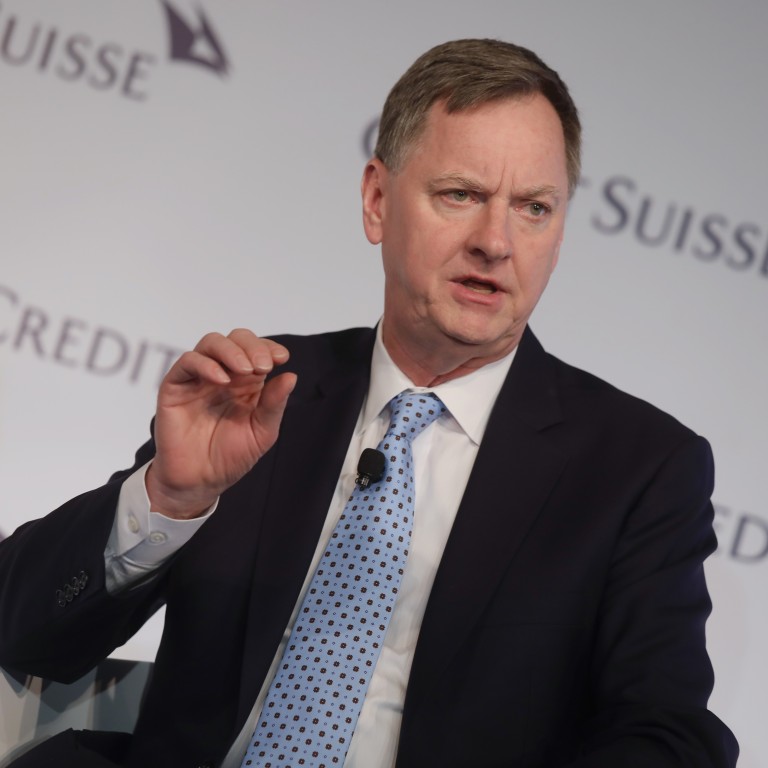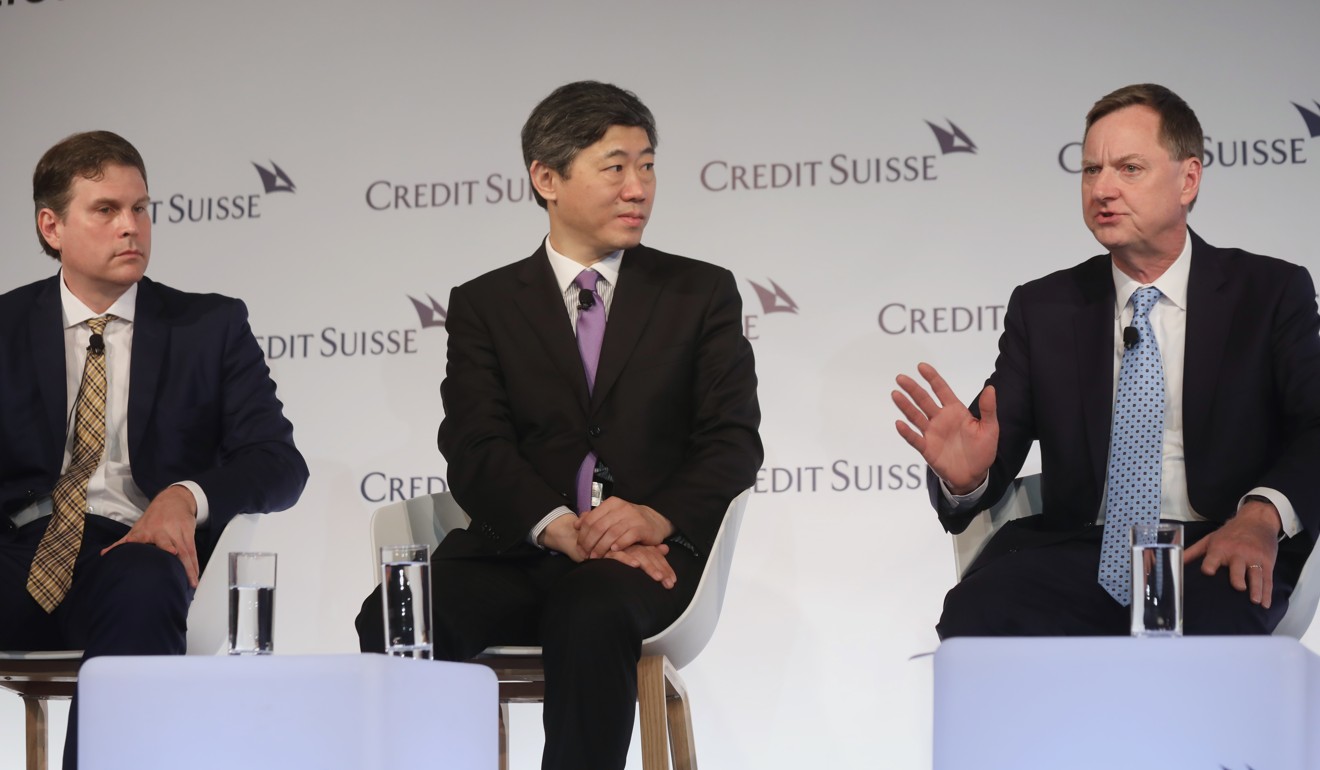
US recession chance ‘no more than 25 per cent’ says Chicago Federal Reserve chief as fear grips markets
- Asian stock markets plunged on Monday, with benchmark indices declining from Seoul to Sydney, after the Dow Jones Industrial Average plunged on Friday
- Charles Evans says the US Federal Reserve’s monetary policy is appropriate and it is keeping its eyes on economic data
The chance of a recession in the United States is “not extraordinary”, according to the president of the Chicago Federal Reserve, conveying a more benign outlook for the world’s largest economy than the fear that has roiled stock markets from New York to Sydney.
Growth in “the US economy has slowed but is still robust”, said Charles Evans, with the United States’ US$21 trillion economy expected to grow by about 2 per cent this year, which is “pretty good”, putting the probability of a recession at no more than 25 per cent.
“The US economy is on good footing,” he added. “Fundamentals are strong. The Fed Funds rate is at a decent level. Growth is expected to be between 1.75 per cent and 2 per cent this year.”
The benign outlook by Evans, who has been the head of the Chicago Federal Reserve since 2007, contrasts with the global fear of a contraction in the US economy.

Asian stock markets plunged on Monday, with benchmark indices declining from Seoul to Sydney, taking the cue from the 460-point drop in the Dow Jones Industrial Average on Friday.
Hong Kong’s key stock index fell by as much as 2.2 per cent, while Shanghai’s benchmark declined as much as 2 per cent. Tokyo’s Nikkei 225 was the region’s biggest loser, plunging as much as 2.9 per cent over concerns that a US recession would crimp demand for Japanese exports like cars and electronics.
What gave the global markets the jitters was Friday’s data showing a contraction in European manufacturing activity in March, as the sector shrank at its fastest pace in nearly six years. That added to concerns about very weak economic growth in Germany and Italy, the largest and the third-biggest economies in the euro zone. Additional data showed US factory output slowed in March, on top of weaker-than-expected employment and industrial production growth in February.
Adding to the markets’ woes, the three-month US Treasury bills’ yield rose above the 10-year Treasury yield last week – the first “yield curve inversion” since 2007 – prompting warnings that the US economy is headed for a recession late this year, or in early 2020.
That is because yield inversions have historically tended to precede major economic slowdowns by about a year. The last time the yield inverted, it was followed by the 2008 global financial crisis.
The US economy is on good footing. Fundamentals are strong. The Fed Funds rate is at a decent level. Growth is expected to be between 1.75 per cent and 2 per cent this year.
To be sure, investors should not misread the inversion, according to Mohamed El-Erian, the former chair of US President Barack Obama’s Global Development Council, writing in a Bloomberg column.
“When it comes to the direct economic and markets effects, this curve inversion is unlikely to be the traditional signal of a US recession,” he said, citing solid US labour market data and rising business investments from tax cuts as among the reasons.
The US Federal Reserve’s current monetary policy – that it does not expect to raise interest rates at all this year – is neutral, appropriate, and well-positioned for the US economy, neither lifting it nor holding it back, Evans said. The US Federal Reserve is also mindful of financial market constraints, which is another good reason to leave interest rates unchanged.
“If activity softens more than expected or if inflation and inflation expectations run too low, then policy may have to be left on hold – or perhaps even loosened – to provide the appropriate accommodation to obtain our objectives,” Evans said. “As we often say, policy will be data dependent.”
He said he did not expect the central bank to raise its interest rates again until the second half of next year. But again, Evans stressed that the US Federal Reserve was watching carefully for risks that could end the current economic upswing.
The policies will affect considerations at the People’s Bank of China (PBOC), said David Li Daokui, an economics professor at Tsinghua University and a former member of the Chinese central bank’s monetary policy committee, which advises the government on interest rates and economic matters.
The decision by the US Federal Reserve to keep rates on hold this year definitely “gives the PBOC more room to ease rates in the coming months,” he said, adding that the PBOC would wait a while and hold fire, as there were already enough stimulus policies in place in China.
The US Federal Reserve has changed its thinking on the US economic outlook significantly in just the last three months. In December, it raised its interest rates and predicted two more increases this year. Two weeks ago, based on growing signs of a global economic slowdown and facing increasing risks from the US-China trade war and the United Kingdom’s exit from the European Union, the US Federal Reserve announced it no longer expected to raise interest rates this year.
Growth in China’s economy has slowed to the lowest rate in decades, weighed down by the year-long trade war with the US. The US central bank would “balance” its monetary policy with the slowdown in the Chinese economy, Evans said.

